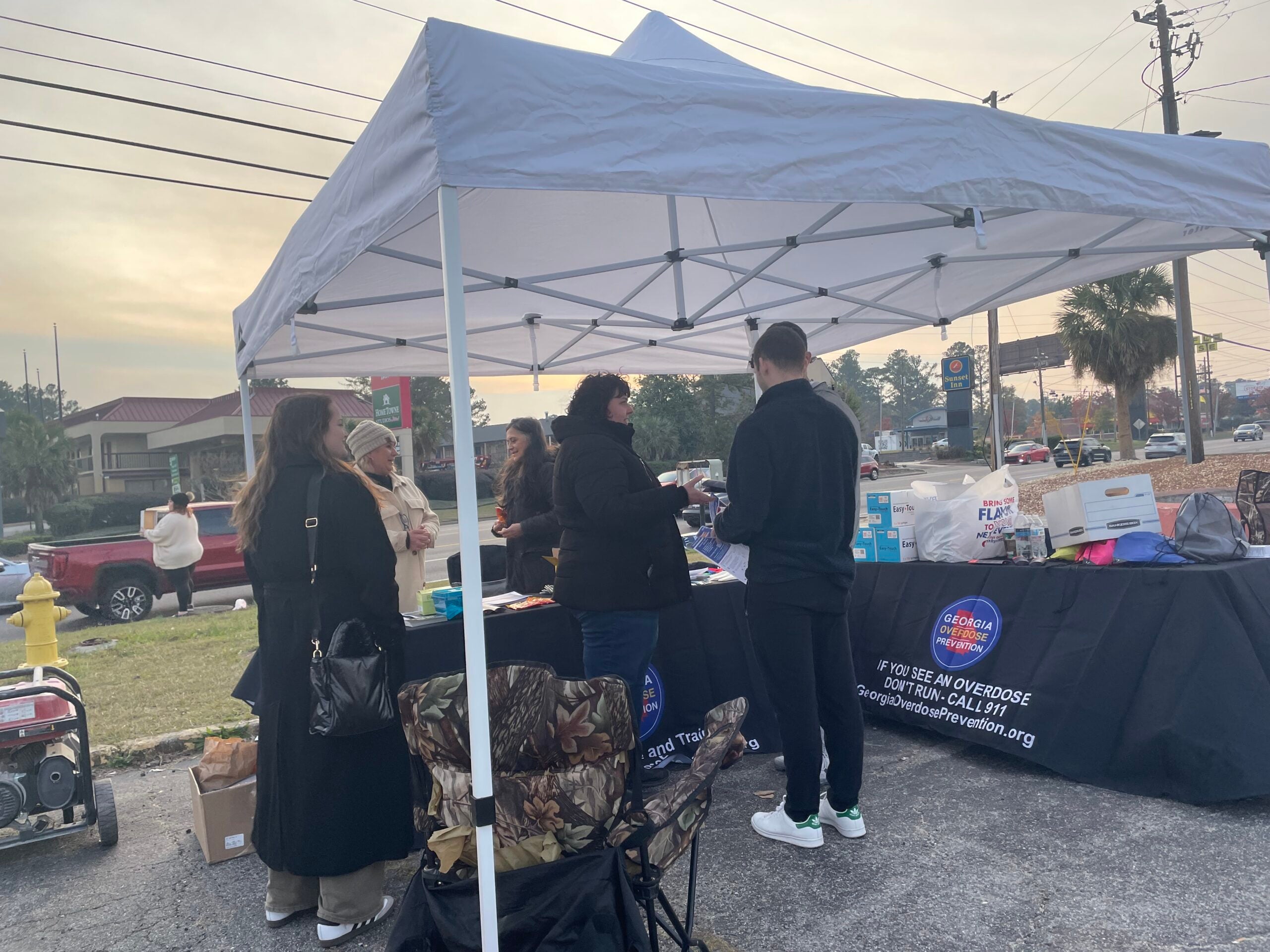Volunteers were camped along Washington Road, near the I-20 exit, on Wednesday to offer resources and to shed a spotlight on the effect of the opioid crisis in Richmond County.
Georgia Overdose Prevention is the statewide organization that pushed for Georgia’s 911 Medical Amnesty Law, passed in 2014, which provides immunity for those calling for emergency assistance for overdoses. Representatives from Georgia Overdose Prevention, joining local recovery educators and advocates in a partnership called the Support Augusta Collaborative, have been in Augusta since Tuesday, offering hygiene packs and free overdose prevention and harm reduction supplies to anyone who comes.
Wednesday, the group had set up a tent in the vacant lot at 3023 Washington Road, in front of the Fairfield Inn, starting at noon, where they distributed upwards of 1,600 kits of Naloxone, a medicine that reverses opioid overdoses, along with instructions and resources.
“Our [organization] is all about teaching lay people how to recognize and treat an overdose,” said Andy Gish, director of Georgia Overdose Prevention, which has issued more than 145,000 such kits in its 10-year history, and led to some 12,000 estimated overdose reversals. “Getting those kits to people who use drugs, people in recovery and friends and family, that very close support network, to keep people safe.”
The effort was coordinated, in part, to support recovery advocates in Augusta, amid Richmond County’s increasing opioid overdose stats. According to the Georgia Department of Health (GPH), Richmond County had 80 deaths due to overdoses of opioids, heroin or fentanyl in 2022—a rate of 38.7 people per 100,000, versus the statewide rate of 18.4. The GPH also calculated that 106 people died of drug overdoses overall in 2023.
“In Richmond County, overdose death rates are absolutely abysmal, especially compared to other places like Atlanta, which has a much higher population,” said Augusta recovery educator Dolly Neese. “There’s going to be drugs, but they’re able to survive while our residents are not. So we’re just trying to figure out where the gaps are, how we can bridge them.”
Alongside a possible lack of knowledge about addiction, recovery, overdose and harm reduction, one factor contributing to the stifling of prevention efforts in August that Neese and Gish both stress is shame towards those who use drugs or suffer from addiction disorders.
“There’s still is a lot of stigma within the community, even amongst people who are former drug users and are now in recovery,” said Neese. “Sometimes even they can be stigmatizing towards those who are still using. So we’re just trying to promote that this is available, and educate the public so that everyone is better able to respond to an opioid crisis.”
Gish underscores that those who use drugs don’t fit a particular demographic profile, and come from all backgrounds, economic circumstances and walks of life.
“I am an ER nurse. The last five reversals I did in the ER were all grandmothers,” she said. “So you may think that this is something that just affects young people, or just affects certain types of people, but it’s 100% not true. It affects all kinds of people. It happens in all communities, and so it doesn’t ‘look like’ anybody.”
The Support Augusta Collaborative will continue to distribute supplies on Washington Road on Thursday, again beginning at noon until the evening, and throughout the week in Augusta. For more information, visit www.georgiaoverdoseprevention.com.
Skyler Andrews is a reporter covering business for The Augusta Press. Reach him at skyler@theaugustapress.com.










